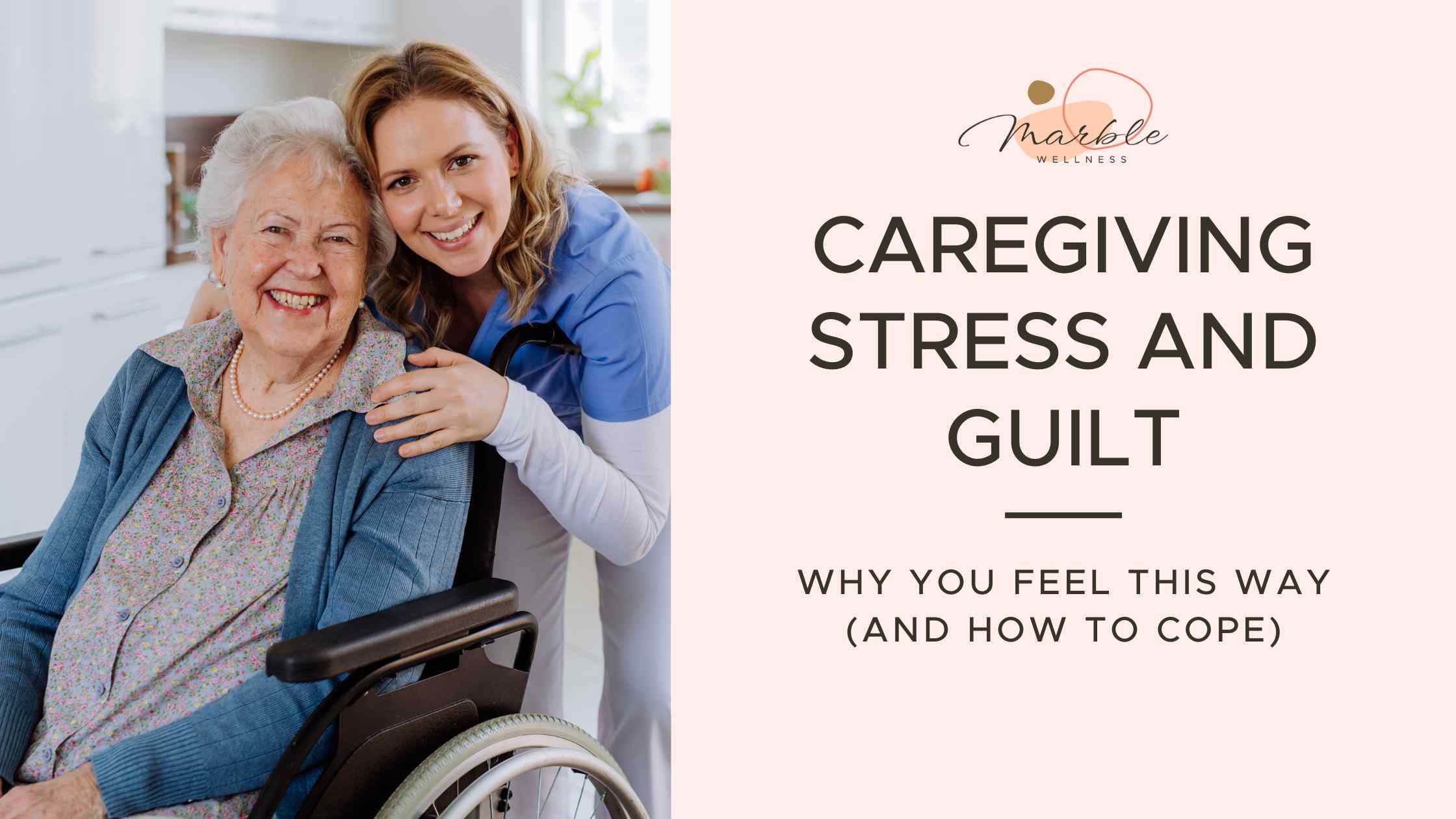Caring for aging parents is one of the most meaningful roles you’ll ever take on—but let’s be honest: it’s also one of the hardest. From navigating family dynamics to managing health concerns, caregiving often brings up complicated emotions like guilt, frustration, fear, or even anger. And if you’ve ever felt guilty about feeling those things? You’re not alone.
This post is all about normalizing those emotions—and helping you find ways to cope without carrying unnecessary guilt. We’ll explore why caregiving feels so overwhelming, how guilt manifests, and actionable strategies to help you navigate this journey with more compassion for yourself.
Why Does Caregiving Feel So Hard?
Caregiving is emotionally complex because it challenges long-standing family roles and dynamics while placing new demands on your time and energy. Let’s break down some of the most common pain points caregivers face:
- “You’re Still My Child” Mentality
Aging parents may resist advice or help because they still see themselves as the authority figure in the relationship—even when they need support. This dynamic can make conversations about health, finances, or living arrangements feel like a power struggle. - Withholding Health Updates
Many parents avoid sharing health information because they don’t want to worry you—or because they’re in denial about their own aging process. This secrecy can leave you feeling blindsided by medical emergencies or sudden declines. - Concerns About Their Living Situation
Deciding whether your parent can continue living independently is one of the hardest conversations to have. Fear of overstepping boundaries often clashes with genuine safety concerns, creating a tug-of-war between honoring their wishes and protecting their well-being. - The Burden of Unpreparedness
If your parent hasn’t created a will, cleaned out their home, or organized important documents, you may feel overwhelmed by the logistical and emotional weight of managing their affairs—especially if they resist your help. - Sibling Dynamics
Disagreements about caregiving responsibilities can create tension among siblings—especially if one person feels like they’re carrying most of the load. Resentment often builds when family members have different ideas about what’s “best” for a parent. - The Emotional Rollercoaster
It’s common to feel scared, angry, or even resentful when caregiving becomes overwhelming—but then feel guilty about having those emotions at all. This cycle can lead to burnout if left unaddressed.
Understanding Caregiver Guilt
Guilt is one of the most pervasive emotions caregivers experience—and it often stems from unrealistic expectations. Here’s how it shows up:
- Neurotic Guilt: Feeling like you’re letting your parent down by not doing enough or making mistakes.
- Existential Guilt: Believing you’re sacrificing your own life or missing out on personal milestones.
- Survivor’s Guilt: Wondering why your parent is struggling while others their age remain healthy.
- Why naming your guilt matters: Unmanaged guilt can lead to chronic stress, physical health issues, and even depression. It’s a warning sign that your needs—whether emotional, physical, or social—aren’t being met.
Normalizing Your Feelings
First things first: It’s okay to feel conflicted! Caregiving relationships are inherently complex because they involve so much love—and so much responsibility. Here’s how to reframe your mindset:
- Frustration ≠ Failure: Feeling irritated doesn’t mean you don’t love your parent—it means you care deeply about their well-being.
- Guilt as a Signal: Use guilt as a cue to examine your boundaries and self-care habits.
- Permission to Be Imperfect: You’re human, not a superhero. Mistakes are part of the process.
Actionable Strategies to Manage Guilt and Stress
- Acknowledge the Guilt
Name the emotion without judgment. Journaling or talking to a trusted friend can help you pinpoint its source. - Adjust Your Expectations
- Replace “I should” with “I can.” For example: “I can visit twice a week” instead of “I should visit every day.”
- Accept that you can’t control outcomes—only your effort.
- Seek Social Support
- Join a caregiver support group (in-person or online) to connect with others who understand your struggles.
- Delegate tasks to siblings, friends, or professional caregivers to lighten your load.
- Practice Externalization
Ask yourself: “What would I say to a friend in my position?” This technique helps you challenge self-critical thoughts. - Focus on What You’re Doing Right
Keep an “I Did It!” list to celebrate small wins, like organizing medications or simply listening patiently. - Schedule Respite Care
Take regular breaks—even a few hours—to recharge. Respite care services can provide temporary relief while ensuring your parent’s needs are met. - Try Grounding Techniques
When overwhelmed, use the 5-4-3-2-1 method: Name 5 things you see, 4 you can touch, 3 you hear, 2 you smell, and 1 you taste. This can interrupt spiraling thoughts.
How Therapy Can Help Adult Caregivers
Talking through these feelings with a therapist can help you:
- Process guilt without self-judgment.
- Navigate family conflicts with tools like active listening and boundary-setting.
- Develop coping strategies tailored to your unique situation.
At Marble Wellness in Ballwin and Lake St. Louis, our therapists specialize in helping caregivers manage stress, burnout, and complex family dynamics. We provide a safe space to explore emotions like guilt and frustration—so you can care for your parent without losing yourself in the process.
You’re Doing Better Than You Think
Caregiving is a marathon, not a sprint. If you’re feeling overwhelmed, remember:
- Guilt is common—but it doesn’t define your worth as a caregiver.
- Support is available, whether through therapy, support groups, or respite services.
- Small steps matter. Even a 10-minute walk or deep breathing session can reset your mindset.
You don’t have to carry this burden alone. Contact Marble Wellness today to schedule an appointment and start prioritizing your well-being—because you deserve care, too.
Start Caregiving Therapy in the St. Louis Area
If you live in the St. Louis metro area and are ready to improve your mental health, our expert St. Louis therapists are here to help. Not only do we have a team of therapists in Ballwin, MO, but we have also recently expanded to serve the Lake St. Louis and Wentzville area! Reach out to our Client Care Coordinator today to discuss your therapy options, both in-person and via online therapy in Missouri.
Contact Us!
Learn About Our Group Offerings

Additional Counseling Services at Marble Wellness in St. Louis, MO
Marble Wellness Counseling services are designed to help set you on a path of living a more fulfilled, calm, and happy life. Our St. Louis area therapists have a variety of training backgrounds and areas of expertise. We specialize in anxiety, depression, grief, chronic illness, therapy for men, couples, and maternal overwhelm. Our practice also helps new moms with various postpartum concerns, moms in the thick of parenting, and moms with teens. We can also chat from wherever you are in the state with online therapy in Missouri. No matter where you are in your journey, we are here to help you thrive!



